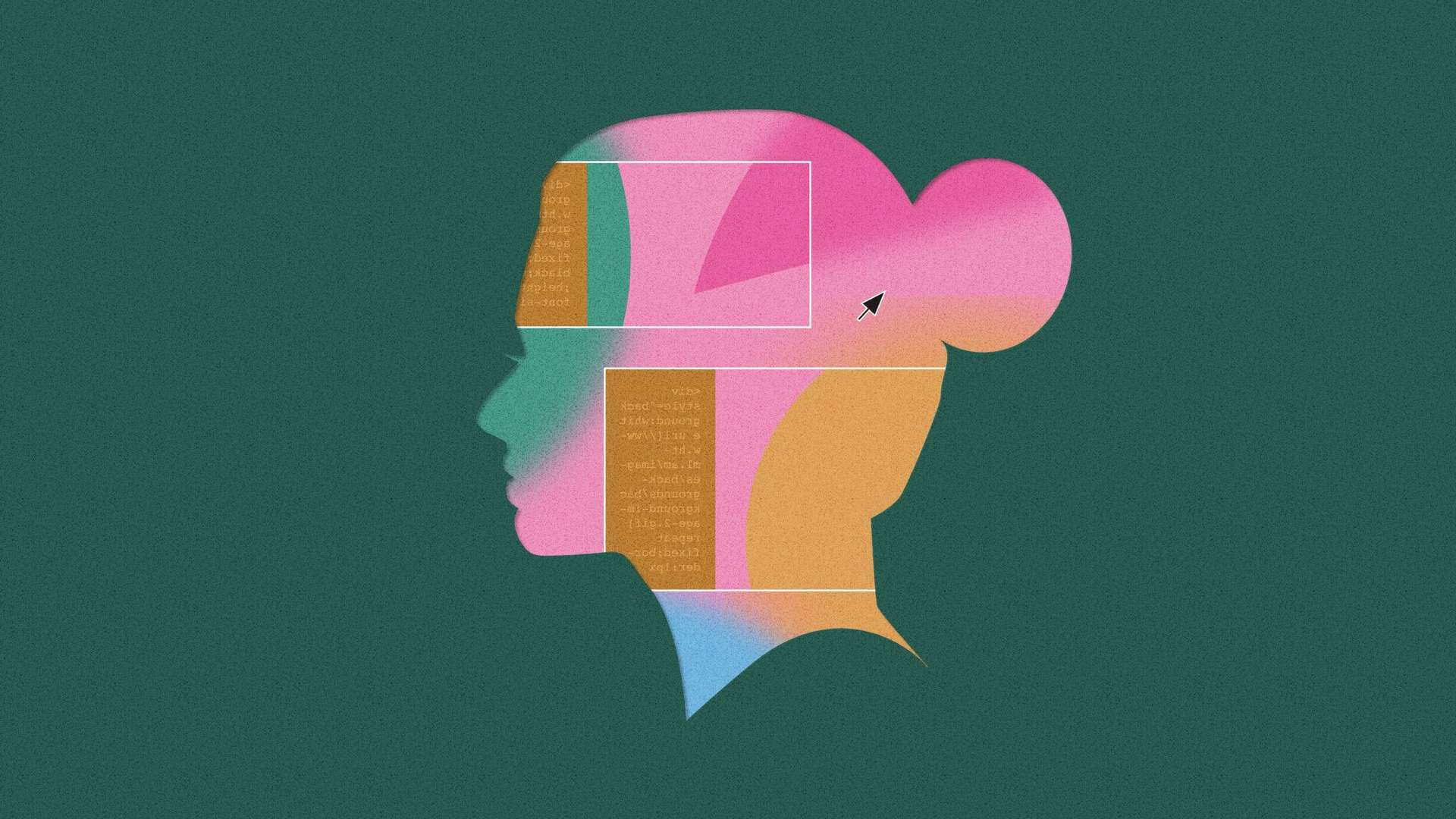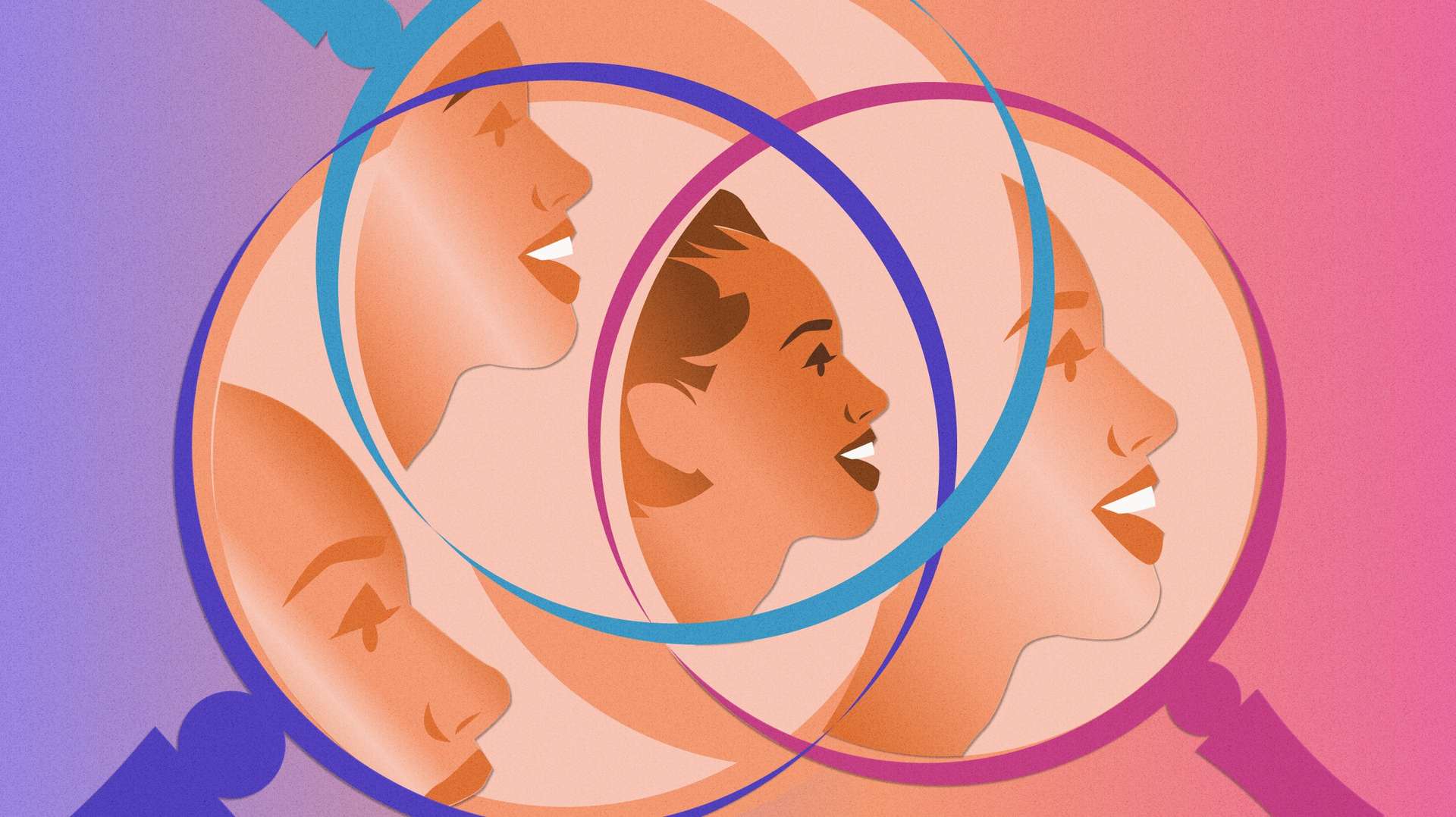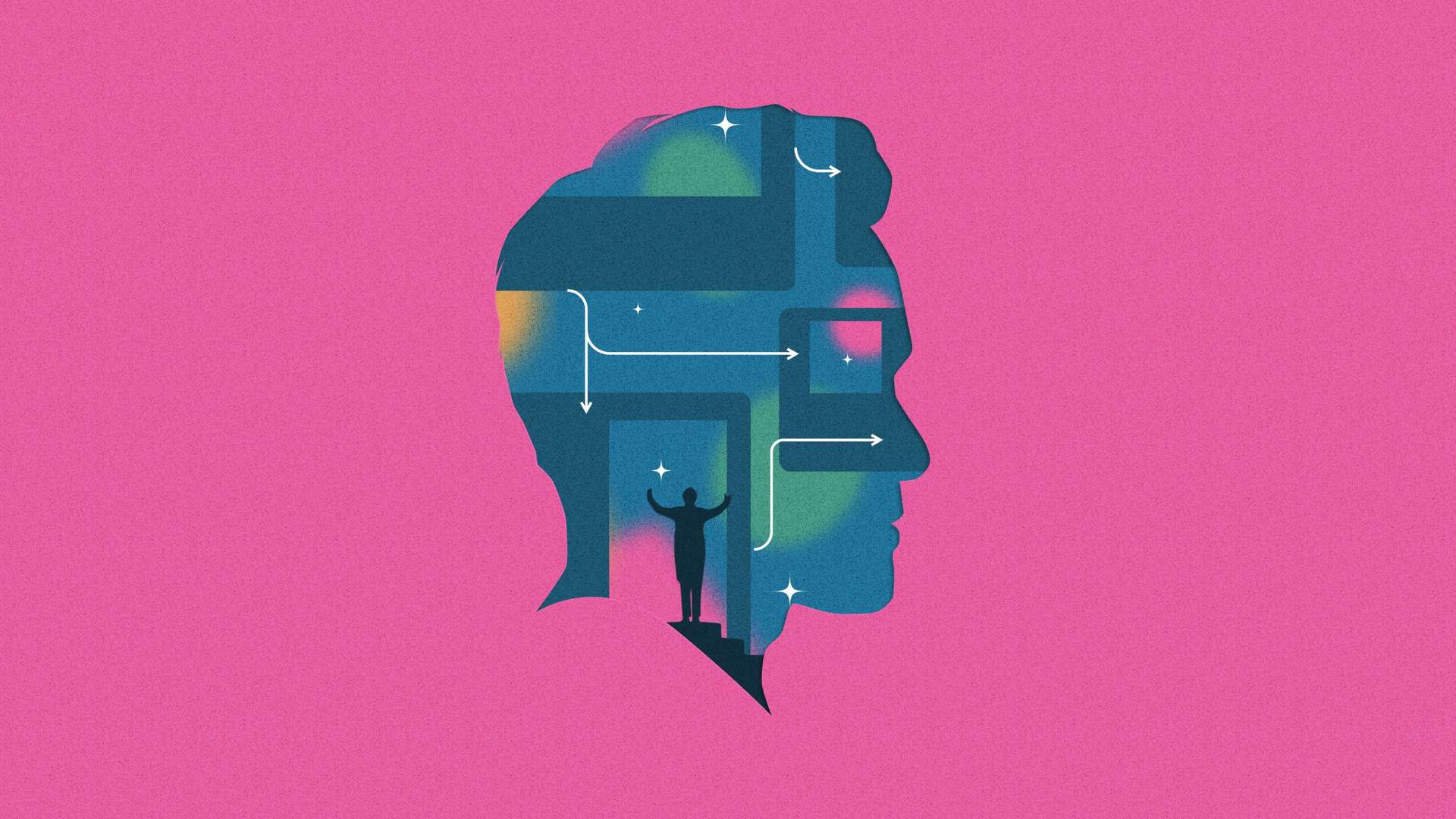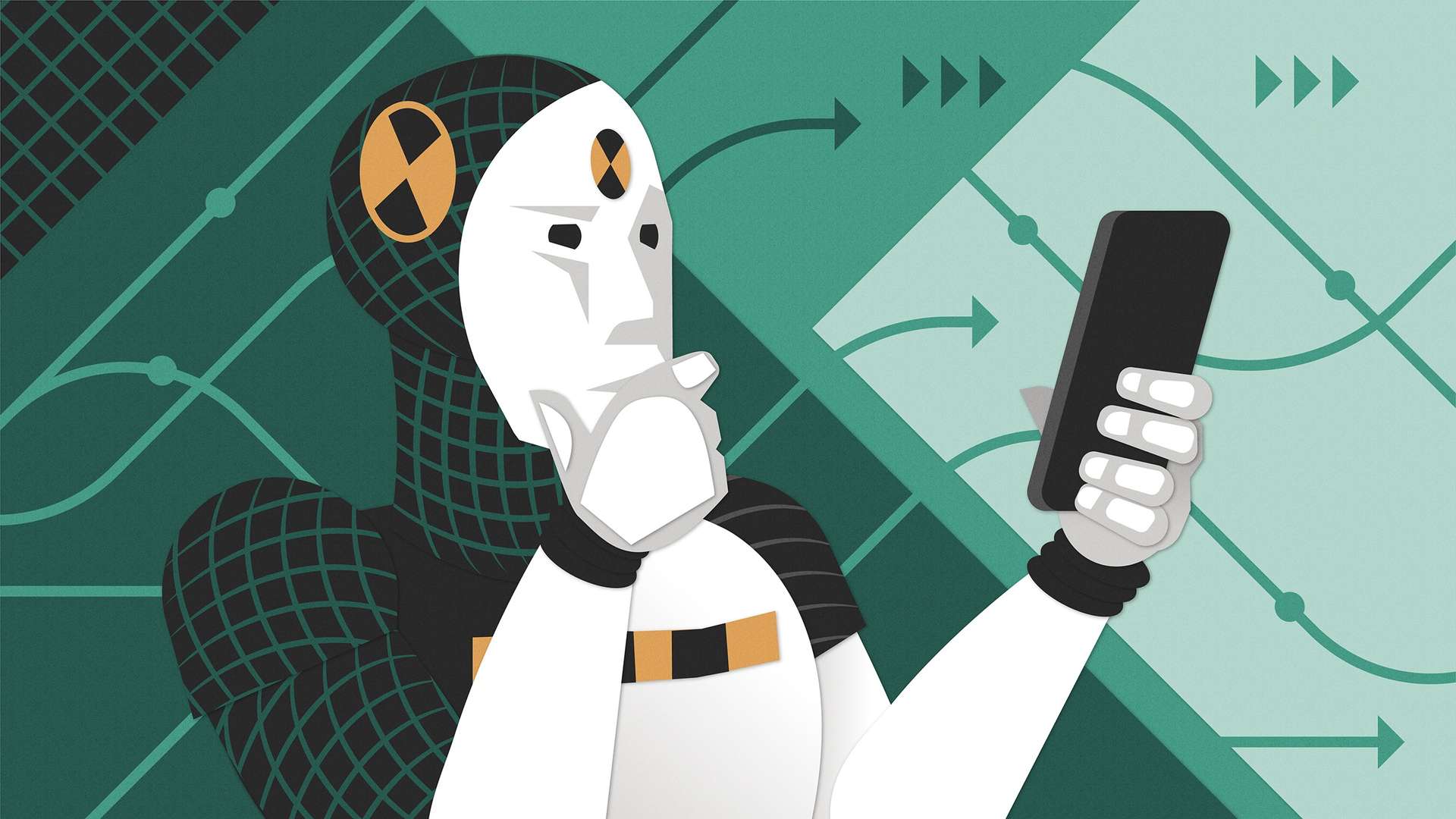Did you know a kid in school who spent all their free time in the computer lab? Were you that kid? Building games and websites, learning to draw with software instead of a pen, and reading about coding languages during free period were choice activities. If you went looking for those kids today, you might find a few working as UX developers.
Part coder, part designer, UX developers bridge the gap between design and technology. UX designers focus on how the interface looks, but it’s up to the developer to make those visual elements function smoothly.
The profession attracts a next-level creative class of technophiles. At Indeed, Senior UX Developer Kirill Mikhaylov has a master’s degree in Animation and Visual Effects, and UX Developer Li Shao has a master’s in Applied Mathematics. Adam Rowe even ran a record company. The common ground is a range of interests that combine analytics and art.
Here, some of Indeed’s UX developers weigh in on how they got started, what skills matter most to interviewers and on the job, and the highs and lows of bringing the user experience to life.
Find opportunities to learn anywhere you can
Ask a group of kids what they want to do when they grow up, and UX developer probably isn’t among the top answers. But if you look at the backgrounds of the people on our developer teams, you’ll see the roots of their careers often stretch back to childhood and other defining times in life. Exploring new opportunities and building on the old ones helped shape their skills and experience.
Kirill Mikhaylov, Senior UX Developer: Thanks to my Dad, who’s also a software engineer, I grew up surrounded by computers. I was amazed by what he was working on and wanted to learn how to do it, too. In my early teenage years, I picked up books on traditional programming languages and later shifted to web technologies, burying myself in it whenever I could. I realized I favor the visual aspect of development and focused on UI and UX. My friends had the same interests, which helped me surround myself with like-minded people.
Adam Rowe, UX Developer: My training in front-end development has been a life-long hobby. I started building websites in my early teens because I wanted to understand how they worked. In college, I was drawn to using code to create art. I love that you can design a program to create art and be surprised at the results. As I began to work professionally in the design world, I naturally gravitated towards UX and UI design and used every opportunity I could to learn from my developer partners.
Li Shao, UX Developer: Coding boot camp prepared me mentally for what coding is, and learning on the job helped me improve those elementary skills. Along the way, I’ve had to learn to be autonomous.
Phillip McCartney, Senior UX Developer: Having a hobby programming project was the most helpful thing for my career. It was the opposite of my day job but still motivated me to build my skills. In my case, it was always creating a web-based game.
Jit Gohil, Senior UX Designer: Initially, I sought any volunteer opportunities where I could get some relevant experience. This was helpful when I started because the stakes were low enough that I didn’t have to worry too much about failing. The diversity of client needs ensured I was continually learning and growing my skillset.
Developers love good UX design and its benefits, too
You might be here because of your love for your design. That’s great. UX developers need lots of love for aesthetics and functionality.
But let’s be real. It’s not only the love of design that keeps UX developers going. It’s also the passion to make a difference in people’s lives. Our UX developers can attest to that. They’ve chosen to dedicate their careers to creating intuitive and enjoyable digital experiences for all users.
Kirill Mikhaylov: I enjoy a well-crafted experience that feels natural, without confusion, and makes me want to return. That takes many iterations, analysis, user testing, and many other detailed steps to achieve. When I started working in UX, these processes weren’t very evolved. Now, they’re the baseline of making a good product.
Adam Rowe: When I chose to pursue design in college, the term user experience wasn’t widely used. I had a choice between focusing on graphic design and advertising design. Upon graduating and starting a career, I steadily moved toward the UX discipline based on my interest in UI and software design.
UX has evolved and shifted so much over the last ten years. I’ve come to appreciate that considering a user’s experience is not a single discipline. It’s an undercurrent of the entire product design and development process.
Jit Gohil: UX was my competitive advantage when trying to differentiate my online marketing business from others that provided similar services. By applying core UX principles—from research and analysis to design, metrics, and iteration—I was able to help my clients succeed.
Although the technology, tools, and terminology have evolved, those same principles help me succeed at Indeed. UX goes beyond something that applies to business needs and feels more like a mindset for general problem-solving.
Aysha Anggraini, Senior UX Developer: I chose UX because I love great design. I got into front-end engineering because I love mixing engineering and design. Sometimes, the work may feel tedious and meaningless. But the reward of finding a solution to a design problem far outweighs the frustration.
Johannes Fischer, Senior UX Developer: Before joining Indeed as a design technologist, I worked at an e-commerce company where the main focus was optimizing checkout rates, and the user was not a factor in our decision-making. When I heard about Indeed’s approach—where a literal empty seat always represents the user in meetings and decisions always consider the users—I applied for a role in UX. My work has definitely lived up to expectations, and I feel my job a real purpose again: focusing on the best user experience instead of business goals only.
Being a systems thinker and problem solver means considering everyone
A zeal for understanding problems and the desire to design elegant solutions are essential skills for UX developers. But the true pros know how to execute work under strict accessibility guidelines and help all users. Here they share a few other types of expertise that help them with their work.
Kirill Mikhaylov: Besides the tools you’re given wherever you’re currently working or studying, an arsenal of other disciplines can aid with essential skills. For example, build an understanding of color, spacing, typography, and other design elements. Applying those disciplines to the craft helps mature your skill set and pushes you further. If you want to be the best at what you do, you never stop learning and continuously improve your skills.
Christina Jeeves, Lead UX Accessibility Developer: Deep understanding of HTML and CSS semantics is an important skill for devs. Accessibility further enhances this foundational knowledge and overlaps UX in so many ways. Accessibility is an essential skill.
Adam Rowe: The most essential skill for a UX developer is to be able to think systematically about problem-solving. You rarely develop a solution for a single challenge. More often, you need to think about how a single solution can account for a wide range of challenges and adapt to situations you may not even be aware of.
Li Shao: It’s essential you remain willing to adapt and learn. I find that challenging myself to learn more not only keeps work fun and different, but learning more also bolsters the confidence I feel in myself and my skills.
Phillip McCartney: To know where we’re going, learn where we came from. Many patterns in modern UI frameworks are in place due to stumbles and improvements of the previous iteration. By understanding why modern patterns exist, you can understand which ones might be the best fit.
Jit Gohil: At the beginning of my career, I focused on the tools and processes. It was important to ideate and communicate visually, so that aspect was critical at the outset. Over time, I’ve come to appreciate the more esoteric aspects of UX, like wanting to understand a problem space deeply enough to design brilliant and elegant solutions for it.
Aysha Anggraini: Communication is your top skill as a developer. UX in tech is about building software for people. It’s impossible to find a good solution without understanding people’s needs. We can only do this through user research and deep collaboration.
Johannes Fischer: The most critical skill is to stay curious. This small truth hasn’t changed since I started as a junior web dev, and it’s helped me adapt to the ever-evolving technologies of modern websites.
Knowledge will come with experience—so be patient
You won’t be an expert overnight, and yeah, that can be frustrating sometimes. Meaningful talents are earned. As these UX devs have grown in their careers, they’ve acquired skills that they realize now could have helped them early on. Here they share what they know now that could have helped them from the start.
Kirill Mikhaylov: Become an accessibility pro. I see more engineers, designers, and product managers applying accessibility guidelines within their scope of work. Whether it’s a small component or a whole platform composed of those components, good devs strive to ensure all users can experience the product to its fullest potential.
Adam Rowe: It turns out my opinions about aesthetics matter very little. As a UX developer or designer, my primary job is making the product as easy as possible to understand and use. As someone with a background in fine art, it was challenging to let go of my personal opinions on what looks good and focus that energy on understanding the goals and needs of the person using what I’m designing and building.
—
Is this article helpful? Subscribe to get occasional emails with new stories like it.
—
Ryan Valentin, Lead UX Designer: Ask for feedback early and often, even when you’re insecure about your abilities and only want to impress—maybe, especially when you’re focusing on impressing. Thoughtful feedback is vital to keeping you on track and not wasting too much time.
Li Shao: I felt I had to jump into this role knowing everything and prove myself by doing the most tickets and working as fast as I could. It helps to take things one step at a time. Build relationships, and ask for help. I lucked out starting with and staying on a tremendously supportive and patient team as I continue to grow.
Phillip McCartney: You can’t know everything, so don’t get aggravated when you make a bad decision.
Jit Gohil: It’s tempting to mimic great designs, but the faithful application of UX dictates that we solve for the problem at hand. That may eventually mean a solution similar to something that exists, but it should never start from a design and work backward.
Johannes Fischer: Don’t forget to become an expert communicator, too. There was a time when I solely focused on coding, writing clean code, and clever one-liners. I might have delivered great code most of the time, but it wasn’t always the best result for our product or users. Good communication is as important as being a good developer. I learned that fairly late in my career.
There’s always something new for UX developers
Technology changes on a whim, which means user experiences do, too. UX roles must constantly evolve to meet new standards and needs. Even after decades in their roles, these folks continue to learn and find fresh challenges at work. We asked UX developers around Indeed what surprised them most about their careers.
Kirill Mikhaylov: UX has grown, and it continues to grow. This is true for Indeed, but an overall awareness and appreciation of UX has risen across the industry. That means people have higher expectations, and new principles often shape how we think about our work.
Christina Jeeves: The evolution and refinement of my role, and my specialty over time, continue to surprise me. I also never thought I would make the salary of a tech developer when I majored in graphic design.
Adam Rowe: You wouldn’t believe the sheer number of ways you can meaningfully contribute to the ultimate user experience of a product. I don’t think I could ever get tired of UX because there are so many facets to explore. Seeing how many different avenues exist to apply creativity in product design and development is amazing.
Johannes Fischer: Becoming a dev changed my life, which is surprising. I started as one of many interns in a small-town ad agency with more interns than full-time employees. Some ten years later, I’m working for an international company with thousands of employees.
Akira Sudoh, Senior UX Developer: User feedback often doesn’t directly connect to what they want or need in a straightforward way. Of course, that makes sense. We need a more holistic mindset on leveraging user feedback to improve our products.
You’ll love collaborating, promoting accessibility, and seeing UX development in action
Developers may spend their days deep in software and strings of code. But in the end, theirs is a people-focused profession. This includes their teammates and the end users.
Kirill Mikhaylov: Two parts of my job are equally important and depend on each other: collaboration and development. I enjoy a well-opinionated conversation with a plausible outcome we can act upon. Everyone has a keen eye for detail, thought processes, and experiences. It’s amazing when all those perspectives can help in tackling a problem. At the same time, I also enjoy being heads-down on a task—whether architecting something new, fixing an issue, or helping someone get unblocked.
Adam Rowe: My biggest passion as both a UX developer and a designer is accessibility. The opportunity to contribute to improving the experience of using a product that can change someone’s life for people of all abilities is endlessly satisfying.
Ryan Valentin: I enjoy helping others learn. It’s great watching unlocked abilities lead to better work in others.
Johannes Fischer: I love the moment when your team releases a new feature, component, website, or re-design because you worked hard on it and feel proud. You get the satisfaction of knowing you did your best to make it as perfect as possible.
A UX dev role can feel overwhelming and chaotic sometimes
It’s satisfying work, but there’s the other side to it, too. Late nights, long hours, finicky lines of code, and technical limitations all riddle the mind of a developer. Here’s what some in our ranks find most challenging about their roles.
Adam Rowe: It’s challenging not to get lost in the noise, but the most important thing is to keep the person using the stuff you’re building foremost in your mind. There are infinite ways to solve any given problem, but improving the experience for the user should be the primary goal.
Li Shao: Here’s a personal struggle: I want to take on too much at once. If I want to learn areas of the product that isn’t UX, my team has been supportive enough to help me do that. The team has never once told me I couldn’t explore something outside of UX. With that, I get too excited and take on more than I can handle.
Phillip McCartney: Keeping up with all the teams at Indeed takes some focus. So many awesome developers here are doing so many things. It’s’s a pity how much I miss if I look the wrong way for just a second.
Jit Gohil: UX requires a great deal of collaboration and communicating effectively with creative and talented people while trying to solve complex problems at the speed of business. That can be a challenge.
Also, working at the forefront of technology means dealing with technical problems that may not have simple, published solutions. These can require days of tedious troubleshooting, but patience and perseverance usually lead to some great insights.
Aysha Anggraini: Initially, working on accessibility wasn’t easy because I wasn’t familiar with it. With the support of Indeed’s accessibility subject-matter experts, I’m now more confident in diagnosing accessibility problems and coming up with a solution.
Johannes Fischer: This job forces me to leave my comfort zone often. Starting out, I focused on development, leaning on my mentor to handle everything else. Later, I had to learn how to handle all that myself, often by leaving my comfort zone and improving soft skills like written and verbal communication, presenting, mentoring, and other skills to help level up my career.
Akira Sudoh: One thing I didn’t expect is that UX software development involves lots of human things. It’s not only users. There’s also our internal organization and other people in the product ecosystem. Considering everyone’s needs is a big part of the development process.
Stay flexible and keep asking questions to succeed in UX development
For new and would-be UX developers, it’s about staying focused, flexible, and pushing yourself. Our team members jumped through some technical and creative hoops to land their roles, but keep in mind that growth is never over. Even when you’ve landed your first UX developer role, there’s still more to learn. New challenges and opportunities always lie ahead, even for experts.
Adam Rowe: Designers: learn about code. Developers: learn about design. The more we can build upon each other’s expertise, the better the results are for the people that use the things we make.
Ryan Valentin: Whatever you’re learning, know that it’ll probably take 2, 3, or 10 times to understand it fully. Don’t let that stop you from pushing forward. You’ll often have little idea of how best to build something until you do it a few times.
Jit Gohil: Let your needs dictate the right tooling for the job instead of dogmatically starting with a popular framework and forcing compatibility. And don’t be afraid to ask lots of questions. The only way to grow your craft is to gain understanding from others in the industry.
Aysha Anggraini: UX development and front-end engineering are continuously evolving. It’s essential to constantly learn to improve your knowledge as the tech stack improves. Being a self-learner and enjoying the learning process is crucial to be successful in the job.
Akira Sudoh: The journey toward the right UX is a tremendous effort, often involving the whole company, but it’s worth it. Your passion matters.
—
Keep in mind that these folks are sharing their personal experiences. Yours may be different and there’s no guarantee that this advice will get you a job. But we hope these perspectives give you some useful insights that help you on your career journey.





